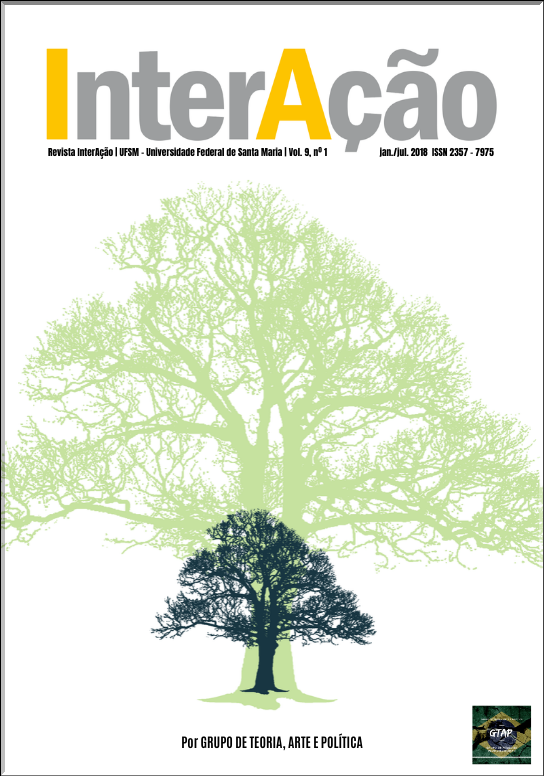Rationalism in International Relations: Concepts, Theoretical Limits and Criticism
DOI:
https://doi.org/10.5902/2357797533219Palavras-chave:
Rationalism, rational choice, Models of Foreign Policy Analysis, Two-Level Games, Nested Games.Resumo
The present paper analyzes the presence of the axiom of the rationality of the political actors in theories of International Relations and traces considerations about the concept of rationality as a whole, its theoretical limits and the main criticisms about it. Aiming to overcome the absence of an in-depth conceptualization for the idea of rationality, the paper base itself on the literature of rational choice theory of Political Science to define the concept in question. It questions the validity of considering the states as rational actors and the limits of explanation offered by the axiom of rationality, addressing the criticisms originated from the constructivist current of International Relations. It concludes that considering states as rational actors is a valid theoretical simplification in cases where subnational actors with decision-making power behave as a cohesive unit and argues that rationalist theories and approaches such as constructivism are potentially reconcilable, considering that they are two analytical lenses whose nature is more complementary than contradictory.
Downloads
Referências
ALLISON, G. T. “Conceptual Models and the Cuban Missile Crisis”. In: The American Political Science Review, v. 63, n. 3, 1969, pp. 689–718.
BULL, H. The Anarchical Society - A Study of Order in World Politics. 3. ed. New York: Palgrave, 2002.
BUZAN, B.; HANSEN, L. The Evolution of International Security Studies. Cambridge: Cambridge University Press, 2009.
DOWNS, A. An Economic Theory of Democracy. New York: Harper & Row, 1957.
FEARON, J. D.; WENDT, A. “Rationalism v. Constructivism: A Skeptical View”. In: CARLSNAES, W.; RISSE, T.; SIMMONS, B. A. (Eds.). Handbook of International Relations. 1. ed. Londres: SAGE Publications, 2002. pp. 52–72.
GILPIN, R. G. War and Change in World Politics. Cambridge UK: Cambridge University Press History, 1981.
GREEN, D. P.; SHAPIRO, I. Pathologies of Rational Choice Theory: A Critique of Applications in Political Science. New Haven: Yale University Press, 1994.
KATZENSTEIN, P. J.; KEOHANE, R. O.; KRASNER, S. D. “International Organization and the Study of World Politics”. In: International Organization, v. 52, n. 4, 1998, pp. 645–685.
KEOHANE, R. O.; MARTIN, L. L. “The Promise of Institutionalist Theory”. In: International Security, v. 20, n. 1, 1995, pp. 39–51.
MEARSHEIMER, J. J. “The False Promise of International Institutions”. In: International Security, v. 19, n. 3, 1994, pp. 5–4.
__________. “A Realist Reply”. In: International Security, v. 20, n. 1, 1995, pp. 82–93.
MORGENTHAU, H. Politics Among Nations: The Struggle For Power And Peace. 6. ed. Beijing: Peking University Press, 1997.
PRICE, R.; REUS-SMIT, C. “Dangerous Liaisons? Critical International Theory and Constructivism”. In: European Journal of International Relations, v. 4, n. 3, 1998, p. 249–294.
PUTNAM, R. D. “Diplomacy and domestic politics: the logic of two-level games”. In: International Organization, v. 42, n. 03, 1988, pp. 427–460.
SNIDAL, D. “Rational Choice and International Relations”. In: CARLSNAES, W.; RISSE, T.; SIMMONS, B. A. (Eds.). Handbook of International Relations. 2. ed. Londres: SAGE Publications, 2013. pp. 85–111.
TSEBELIS, G. Nested Games: Rational Choice in Comparative Politics. Berkeley: University of California Press, 1990.
WALTZ, K. N. Theory of International Politics. Reading: Addison-Wesley Publishing Company, Inc., 1979.
WEBER, M. “Politics as a Vocation”. In: WEBER, M. Essays in Sociology. [s.l.] Psychology Press, 1991.
WENDT, A. “Anarchy is What States Make of it: The Social Construction of Power Politics”. In: International Organization, v. 46, n. 2, 1992, pp. 391–425.







